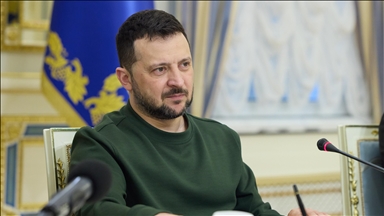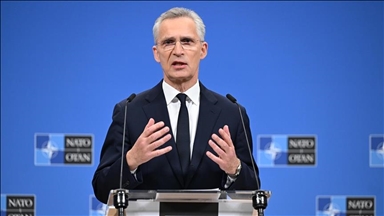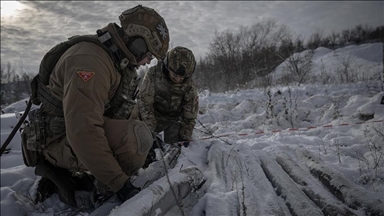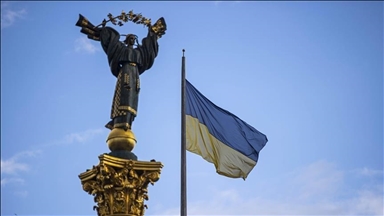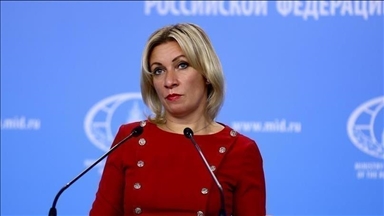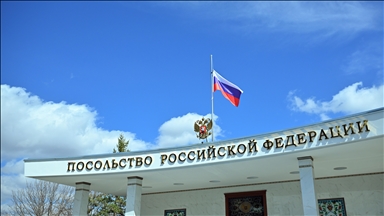ANALYSIS - Building an empire on an old socioeconomic foundation a risky step
Putin's war with Ukraine and sanctions endangers old socioeconomic model which sustained post-Soviet Russia for 30 years
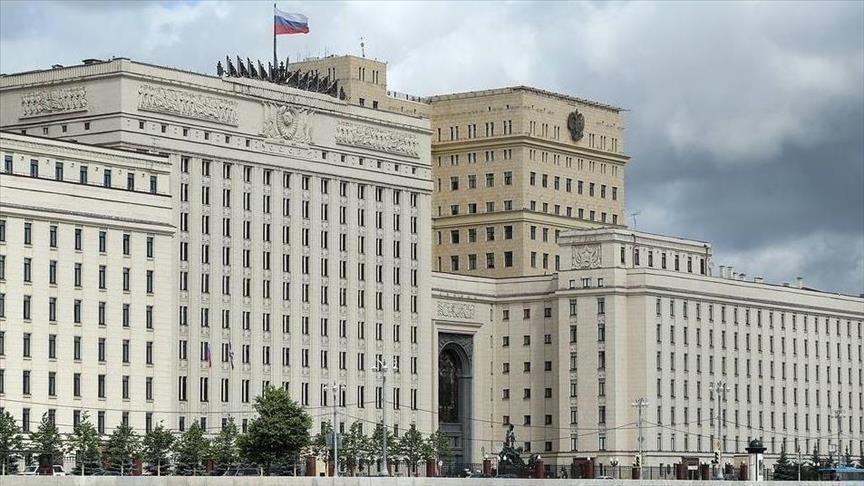
The writer is an associate professor of history at Indiana University South Bend.
ISTANBUL
Russian President Vladimir Putin's war on Ukraine and sanctions endangers the old socio-economic model which sustained post-Soviet Russia for 30 years. At the same time, there is no sign that the Kremlin wants to change it. And it is quite possible that it has no mechanism to do this.
Russia's economic resilience
The West has imposed harsh sanctions upon Russia. While some observers believe that the country's economy would collapse immediately, it has survived. The ruble even rebounded. What was the reason? To start with, no one would expect that sanctions would have an immediate effect. Second, Russia can still sell gas and oil to Europe, and it will take a long time before most of Europe would be able to live without Russian gas and oil. Third, and this is most important, Russia's economy is still not fully "modern" unlike America, where the "service" bubble is quite susceptible to changes in the public mood, and the stock market could quickly lose "value." Russia's economy is still related to producing some real goods, such as steel, grain, oil, gas, etc. Yet Russia could be in trouble in the long run unless it experiences dramatic change.
The economic problem
Those who have observed the country's evolution have often emphasized the distinct differences between the regimes of Yeltsin, early Putin, and more recent Putin, emerging after the invasion of Ukraine. Still, these differences are deceptive if one looks at the socio-economic arrangement: It has been the same throughout all these periods. With all the remaining industrial capacity and production of many real goods, it was American-type capitalism. The Russian economy has followed the route of the American economy, with mass deindustrialization and an actual sharp decline.
In an over-simplistic way, this operational model was the following: Russia sent gas and oil to the West and received, mainly from Europe, what was needed to operate the country, minus what was slashed by "oligarchs." This model is now in severe crisis. While the West, mainly Europe, could not stop buying Russian gas and oil immediately, the trend is in the direction of reduction of the dependence on Russian fossil fuels.
Responding to the emerging trend, Putin ordered his administration to find a way to send Russian gas and oil to the East. Still, neither China nor India would be able to absorb all the oil and gas shipped to Europe. In addition, building new gas lines would be a herculean task. For example, creating a gas line to India would need to cross unstable Central Asia and even the Himalayas. Not only would this require years, but also billions of dollars. In addition, no one could guarantee that unstable Central Asia or some other geopolitical change would not make the gas line as useless as Nord Stream II.
Old model does not work
The old model does not work, and the country would need to produce much more to be genuinely independent of the West. While some segments of the Soviet-era economy, those engaged in real production, survive, they are only small remnants of the past glory. A lot of branches of industries that flourished under the Soviet regime either shrank or disappeared.
Visible reindustrialization and creation of an autarchical or semi-autarchical state (this was the operational model of the former USSR) would require the squeezing of societal resources and replacement of the "invisible hand of the market" with the quite visible hand of centralized planning.
It would follow, with certain amendments, Stalin's "revolution from above", which created a highly centralized industrial autarchic system, which was the template for the USSR until the end of the Cold War. One might also note that increasing reliance on internal resources and "de-globalization," together with the government's strong engagement in the economy, has nothing to do with either Russian culture or Marxism. Following the crises of WWI, the Great Depression, and WWII, the United States operated in a substantially comparable manner to the Soviet Union or Nazi Germany.
There is no sign that the Kremlin is ready to take even one step in this direction. Even those Russian ideologists who are strongly anti-Western can present no clear alternative. They blasted the "plutocratic" and predatory West but have provided no socio-economic model drastically different from the West or even present-day Russia. The assertion of the old model could be seen by the reappointment of Elvira Nabibullina, a strong supporter of the "free market," as governor of the Bank of Russia.
The difficulties with changing the socioeconomic model cannot be attributed to a lack of an alternative program or even to the fact that such acts would enrage "oligarchs" and middle-class people. One might note here that Stalin had managed to engage in dramatic changes to the country's socio-economic model against the majority's will. Still, Putin could hardly follow in Stalin's footsteps, plainly because he had not enjoyed Stalin's apparatus of coercion.
The problem with the apparatus
A charismatic leader can change society in the most radical way if he enjoys the absolute loyalty of his apparatus. These people are ready to risk or sacrifice everything for their leader. Putin does not have such people. His security personnel is not the guardians of Plato, who are only concerned with power and certain ideological postulates. It is understood that they enjoy the power and want to see Russia as a grand state, boldly facing, if needed, the West. Still, most of these people are corrupt. They enjoy property and riches. In fact, Putin's socio-economic system is based on the "symbiosis" of the business elite and bureaucracy, including those in the apparatus of coercion.
The grand transformation in the Stalinist fashion would touch on the economic interests not only of tycoons and the middle class but them as well. And it was they who would not tolerate this easily. Indeed, even Machiavelli noted that a ruler could do anything with his subjects unless he touched their women or property. Putin instinctively understands this and has stated that one's patriotism does not depend on one's income; moreover, these patriots could even have property in foreign lands. One could assume that neither Stalin, Xi, nor the current Iranian leader would agree with Putin. While the current security apparatus could not be easily used for dramatic changes, the same could be said about the army.
Army problems
Those who asserted the Russian approach to the war could also confuse observers. On the one hand, observers noted that most Russians support the war. Still, there is a different type of information. Despite their support, there is no evidence of mass volunteering to fight, as in 2014, when Donbas and Lugansk were engaged in fighting with Kyiv. At the same time, mass looting and brutality of the Russian Army indicated the low discipline level and morale. How can this be explained? The general public's support is caused by the general resentment against the West, especially the US. It could be compared to the response of the humiliated post-WWI Germans to Hitler's original expansion.
On the other hand, these feelings are not strong enough to inspire people to volunteer to risk their lives. Thus, their enthusiasm for war is only skin-deep. Most of these "kontraktniki" (mercenaries) and regular conscripts have come from the poor provincial folk. For them, the war is not an exciting imperial adventure but a hard, dangerous job, and their reliability for internal use is questionable.
What is the conclusion?
The current conflict does not change the socio-economic model which emerged in Russia 30 years ago. It was based on free-market capitalism, deindustrialization, and reliance on the export of fossil fuels. The war has challenged these socio-economic arrangements and required a peculiar "re-Stalinization" of the country in this or that form. Still, there are no signs that the Kremlin has contemplated this transformation or has the means to do this. This implicates increasing economic problems and social tension eventually.
*Opinions expressed in this article are the author’s own and do not necessarily reflect the editorial policy of Anadolu Agency.
Anadolu Agency website contains only a portion of the news stories offered to subscribers in the AA News Broadcasting System (HAS), and in summarized form. Please contact us for subscription options.


